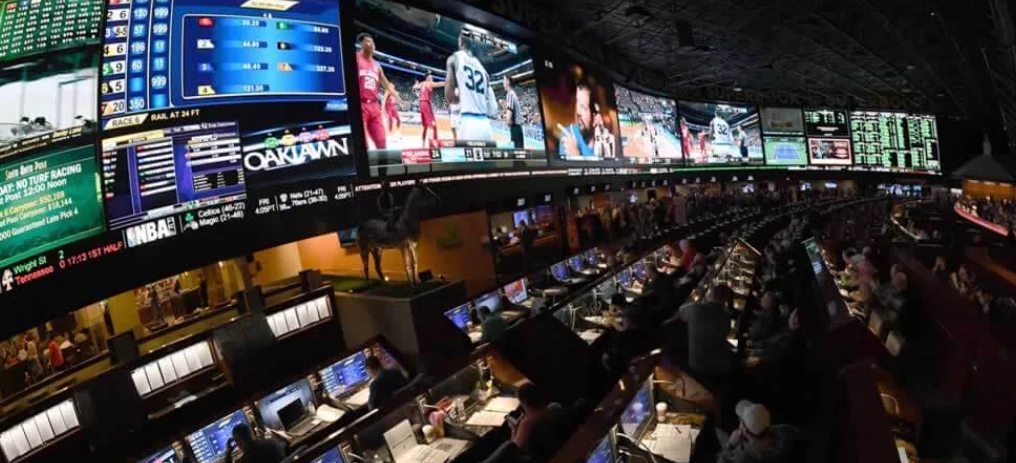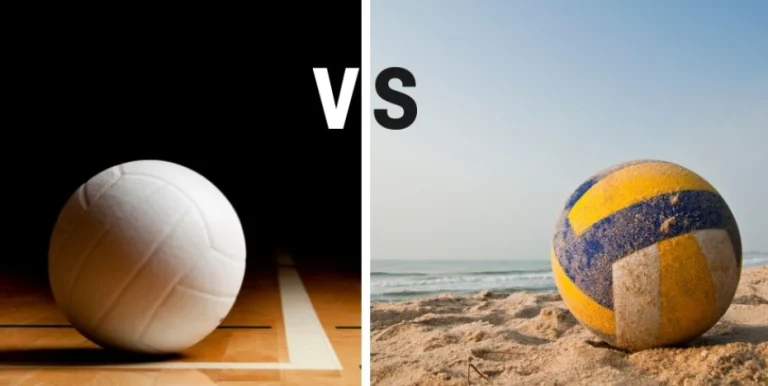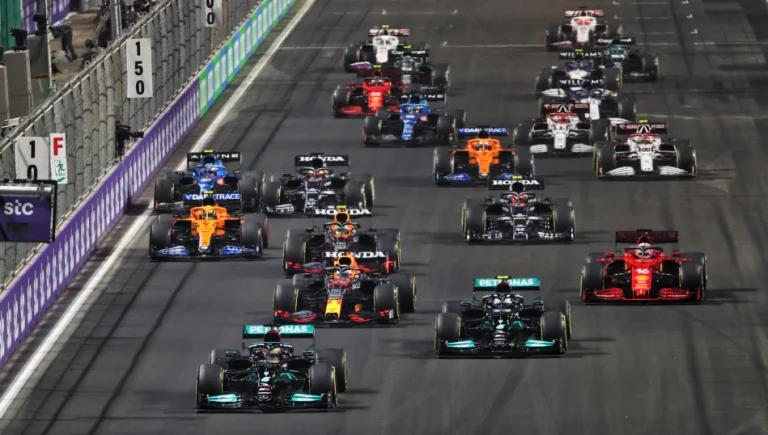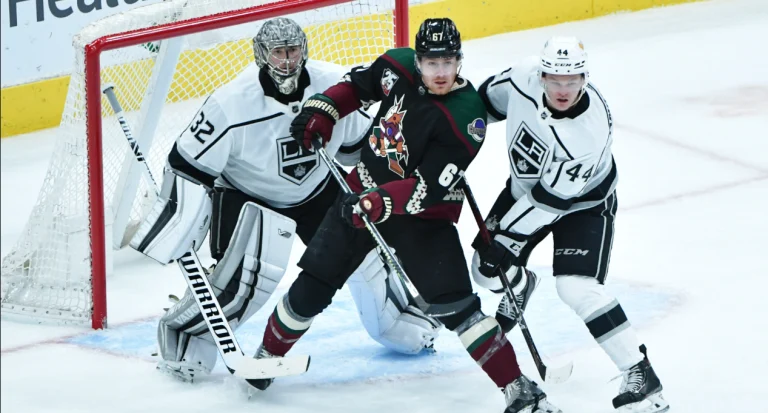How to Bet on Sports in the USA
The American athletic wagering revolution has fundamentally reshaped entertainment consumption patterns across the nation. Modern how to bet on sports in the USA practices encompass sophisticated digital platforms, advanced analytical tools, and comprehensive regulatory oversight that ensures consumer protection. Understanding this multifaceted ecosystem requires deep knowledge of jurisdictional variations, technological innovations, and strategic methodologies that separate successful bettors from casual participants.
Contemporary athletic wagering transcends simple game predictions, incorporating real-time data analysis, machine learning algorithms, and behavioral psychology principles. Professional bettors leverage these sophisticated tools to identify market inefficiencies and exploit value opportunities that casual observers consistently miss in the rapidly evolving betting usa marketplace.
📊 Market evolution: The US sports betting market has experienced exponential growth since 2018, with annual handle increasing from $5 billion in 2019 to over $125 billion in 2024. Mobile betting now accounts for 85-90% of all wagers, demonstrating the dramatic shift toward digital platforms. Industry analysts project the market will reach $150-180 billion by 2027 as more states legalize and mature their regulatory frameworks.
Sports betting in the USA
The American competitive prediction ecosystem represents one of the fastest-growing entertainment sectors in modern history, generating annual revenues exceeding $7 billion since federal restrictions were lifted. This explosive growth reflects fundamental shifts in consumer behavior, technological advancement, and regulatory acceptance that have transformed sports betting USA from niche activity into mainstream entertainment phenomenon.
Contemporary prediction on competitive events integrates cutting-edge mobile technology, artificial intelligence-powered odds generation, and comprehensive data analytics that provide unprecedented transparency and fairness. The industry’s maturation has attracted major media companies, technology giants, and financial institutions, creating robust ecosystems that prioritize consumer protection while maximizing entertainment value.
Market dynamics continue evolving rapidly as states implement unique regulatory frameworks designed to balance consumer protection with competitive market conditions. This regulatory diversity creates opportunities for operators to innovate while ensuring bettors receive comprehensive protections against fraud and unfair practices.
💰 Revenue generation: State governments collected over $1.8 billion in sports betting taxes during 2024, with New York alone generating $450+ million from its 51% tax rate. These revenues fund education initiatives, infrastructure projects, and problem gambling treatment programs. The industry directly employs 35,000+ Americans in technology, operations, customer service, and compliance roles, while indirectly supporting thousands more through marketing, media partnerships, and payment processing services.
History of legalization of betting in the USA
The transformation from prohibition to widespread acceptance began with Nevada’s pioneering athletic wagering legislation in the 1940s, establishing the foundational framework that would eventually influence national policy. The 1992 Professional and Amateur Sports Protection Act created a 26-year federal moratorium that restricted legal online operations to four grandfathered states: Nevada, Delaware, Oregon, and Montana.
The pivotal Murphy v. NCAA Supreme Court decision in May 2018 declared PASPA unconstitutional, arguing that federal government overreach violated state sovereignty principles. This landmark ruling triggered an unprecedented legislative avalanche as states rushed to capitalize on potential tax revenues and regulate previously underground markets.
Since the federal restriction removal, over 35 states plus Washington D.C. have enacted comprehensive sports legal frameworks, with additional jurisdictions actively considering legislation. This rapid expansion of sports betting USA demonstrates changing societal attitudes toward gambling and states’ urgent need for alternative revenue sources following economic disruptions.
⚖️ Key legislative milestones:
- May 14, 2018: Supreme Court strikes down PASPA in Murphy v. NCAA ruling
- June 2018: New Jersey launches first post-PASPA sports betting operations
- 2019: 14 states pass legalization bills, creating competitive market dynamics
- 2020-2021: Pandemic accelerates digital adoption, mobile betting surges 300%
- 2022: Ohio and Massachusetts legalize, adding 24 million potential bettors
- 2024: North Carolina launches, becoming largest new market since New York
Who can bet
Legal athletic wagering participation requires strict adherence to age verification protocols, with most jurisdictions mandating 21-year minimum ages that align with alcohol consumption laws. Advanced geolocation tracking systems ensure bettors remain within authorized state boundaries during wager placement, regardless of residency status or tourism circumstances.
Identity verification processes involve comprehensive background checks including Social Security number validation, government-issued identification scanning, and cross-referencing with exclusion databases. These sophisticated security measures protect both operators and consumers while maintaining regulatory compliance across multiple jurisdictions.
Why Americans choose online betting
Digital platform dominance stems from unprecedented convenience factors including 24/7 accessibility, comprehensive market coverage, and advanced analytical tools unavailable through traditional retail channels. Mobile applications provide instant access to live odds updates, statistical databases, and promotional offers that enhance overall prediction experiences.
Online platforms leverage sophisticated technology infrastructure to deliver real-time wagering opportunities, instant settlement capabilities, and personalized user experiences that adapt to individual preferences and prediction patterns. These technological advantages, combined with competitive odds, extensive prop betting markets, and streamlined taxes on sports betting reporting features, make digital platforms overwhelmingly preferred by American bettors.
📱 Digital dominance: Mobile betting applications have revolutionized the wagering experience, with leading platforms processing over 500 bets per second during major sporting events like the Super Bowl. The average mobile bettor checks odds 12-15 times per week, compared to just 2-3 visits to retail locations by traditional bettors. Push notifications for odds changes, live streaming integration, and one-tap betting functionality have made mobile apps the preferred method for 88% of American sports bettors.
Key terms every bettor should know
Mastering competitive forecasting terminology represents the foundational step toward professional-level wagering competency. Industry professionals utilize specialized vocabulary that encompasses mathematical concepts, legal frameworks, and strategic methodologies essential for successful betting on sports participation. Understanding these nuanced terms enables forecasters to communicate effectively with operators, analyze market movements, and implement sophisticated prediction strategies.
Professional terminology extends beyond basic wagering concepts to include advanced analytical metrics, risk management principles, and regulatory compliance requirements. Successful bettors must comprehend complex mathematical relationships between odds formats, probability calculations, and expected value assessments that drive profitable decision-making processes.
🎓 Terminology mastery: Professional bettors dedicate 20-30 hours studying industry terminology before placing their first wager. Understanding concepts like “closing line value,” “expected value (EV),” and “vig/juice” separates long-term winners from recreational players. Sharp bettors can identify market inefficiencies within seconds by recognizing when terminology signals mispriced odds—for example, understanding that “-110 both sides” represents standard vig while “-105/-115” indicates unbalanced action creating potential arbitrage opportunities.
Sports betting – what does it mean
Contemporary competitive forecasting encompasses sophisticated wagering systems that combine statistical analysis, probability theory, and risk management principles to create comprehensive entertainment experiences. Modern platforms integrate advanced algorithms, machine learning capabilities, and real-time data processing to generate dynamic odds that reflect constantly changing game conditions and market sentiments.
Licensed operators function as intermediaries between bettors and sporting events, providing regulated environments where consumers can safely engage in betting on sports with predetermined outcomes. These platforms utilize complex mathematical models to ensure fair odds generation while maintaining sustainable business operations through carefully calculated house advantages.

Bet / Wager – difference in terms
While “bet” and “wager” function synonymously in contemporary American athletic wagering discourse, subtle distinctions exist within regulatory documentation and legal frameworks. “Wager” typically appears in formal contracts, licensing agreements, and regulatory filings, conveying legal precision and formal acknowledgment of financial risk. Conversely, “bet” dominates casual conversation and marketing materials, reflecting informal communication preferences among recreational participants.
Professional bettors and industry analysts often prefer “wager” when discussing strategic concepts or analytical methodologies, while casual participants gravitate toward bet online for everyday conversations and social media interactions.
Sportsbook vs bookmaker – modern distinction
Sportsbooks are licensed facilities or platforms accepting sports bets, while bookmakers traditionally referred to individuals setting odds and accepting wagers. Modern American usage treats these terms as equivalent, with “bookmaker” preferred for legal operators.
Odds: American, decimal, fractional
American odds use positive and negative numbers (+150, -200) to indicate potential profits and required stakes. Decimal odds (2.50, 1.50) show total returns including original stakes. Fractional odds (3/2, 1/2) display profit ratios but remain less common in US markets.
| Odds format | Example | $100 bet returns | Calculation method |
|---|---|---|---|
| American (positive) | +150 | $250 total | $150 profit + $100 stake |
| American (negative) | -200 | $150 total | $50 profit + $100 stake |
| Decimal | 2.50 | $250 total | $100 × 2.50 |
| Decimal | 1.50 | $150 total | $100 × 1.50 |
| Fractional | 3/2 | $250 total | ($100 × 1.5) + $100 |
| Fractional | 1/2 | $150 total | ($100 × 0.5) + $100 |
Betting line
Wagering lines represent odds and point spreads offered by bookmakers for specific events. These lines fluctuate based on betting volume, injury reports, taxes on sports betting considerations, and other factors affecting game outcomes.
Stake and payout
Stakes represent the amount wagered on specific bets, while payouts include both original stakes and profits for winning wagers. Understanding this distinction helps bettors calculate potential returns accurately.
| Term | Definition | Example |
|---|---|---|
| Moneyline | Straight bet on game winner | Lakers -150 vs Warriors +130 |
| Point Spread | Margin of victory betting | Chiefs -7.5 vs Patriots +7.5 |
| Total (Over/Under) | Combined score betting | Over/Under 48.5 points |
| Parlay | Multiple bets combined | 3-team parlay: $10 to win $60 |
| Juice/Vig | Sportsbook commission | -110 odds include 10% vig |
💡 Essential glossary terms:
- Moneyline: Straight bet on game winner without point spreads (Lakers -150 vs Warriors +130)
- Point spread: Margin of victory betting that levels the playing field (Chiefs -7.5 vs Patriots +7.5)
- Total (Over/Under): Combined score betting for both teams (Over/Under 48.5 points)
- Parlay: Multiple bets combined for higher payouts but increased risk (3-team parlay: $10 to win $60)
- Juice/Vig: Sportsbook commission built into odds, typically 10% (-110 odds include standard vig)
- Push: Tie result where original stake is returned without profit or loss
- Sharp: Professional bettor with sophisticated analytical approach and proven track record
- Square: Recreational bettor who relies on intuition rather than data analysis
Different types of sports bets and their features
The American athletic wagering marketplace offers unprecedented diversity in prediction options, ranging from straightforward moneyline selections to complex proposition wagers that require specialized knowledge and analytical expertise. Each wagering category carries distinct risk-reward profiles, strategic considerations, and mathematical foundations that appeal to different participant demographics and experience levels.
Understanding bet type variations in betting on sports enables strategic portfolio diversification, risk management optimization, and profit maximization through targeted market selection. Professional bettors leverage this diversity to create balanced approaches that combine conservative base strategies with aggressive profit-seeking opportunities.
| Bet type | Risk level | Typical odds range | Ideal user profile | Market liquidity |
|---|---|---|---|---|
| Moneyline ✅ | Low-Medium | -300 to +400 | Beginners & casuals | Very high |
| Point spread 💡 | Medium | -110 to -105 | NFL/NBA enthusiasts | Very high |
| Totals | Medium | -115 to -105 | Analytical bettors | High |
| Parlays ✅❌ | High | +150 to +2000 | Thrill seekers | Medium |
| Futures | Very high | +300 to +10000 | Patient investors | Low-Medium |
| Props | Variable | -200 to +500 | Specialist bettors | Medium |
🎯 Popular bet types explained:
- Moneyline bet ✅: Fundamental winner selection represents the purest form of competitive prediction, eliminating complex handicapping considerations while focusing entirely on game outcomes. These straightforward bets appeal to newcomers due to their intuitive nature and transparent payout structures.
- Point spread bet 💡: Exceptionally popular in American football and basketball, spreads create artificial equilibrium between mismatched competitors by requiring favorites to win by predetermined margins. This format generates balanced wagering activity while providing competitive odds for both sides.
- Totals (Over/Under): Scoring-focused wagers allow bettors to predict combined point production without selecting winners, creating opportunities for analytical approaches based on pace of play, defensive efficiency, and weather conditions.
- Parlays ✅❌: Multi-selection combinations exponentially increase potential payouts while dramatically reducing winning probabilities. These high-variance bets attract risk-tolerant participants seeking life-changing returns from modest investments.
- Futures: Season-long championship forecasts and award wagers enable early positioning on eventual outcomes with attractive pre-season odds. These markets require patience and capital commitment but offer substantial profit potential for accurate forecasters.
- Prop bets: Individual performance wagering covers player statistics, game occurrences, and novelty outcomes that extend beyond traditional team-based results. These specialized markets reward deep knowledge of player tendencies and situational factors.
- Live betting (In-Play): Real-time wagering during active games provides dynamic opportunities as odds fluctuate with game flow. This format demands quick decision-making, comprehensive game knowledge, and ability to identify value in rapidly changing circumstances.
- Teasers and pleasers: Modified point spread wagering allows odds manipulation in favor of (teasers) or against (pleasers) participants for adjusted payouts. These options provide strategic flexibility for experienced participants seeking customized risk-reward profiles.
- Round robin bets: Systematic parlay combinations from selected teams create insurance against individual losses while maintaining substantial payout potential. This sophisticated approach balances risk management with profit optimization.
How to legally bet on sports in the USA
Legal competitive prediction operates under strict state regulations ensuring consumer protection and fair gaming practices. Mastering how to bet on sports in the USA requires comprehensive understanding of these jurisdictional requirements to prevent legal complications and ensure secure betting experiences.
⚖️ Legal landscape overview: As of 2025, 38 states plus Washington D.C. offer legal sports betting, representing 80% of the US population. However, legal frameworks vary dramatically—some states permit mobile betting statewide, while others restrict online wagering to specific locations or prohibit it entirely. States like Texas, California, and Florida remain without legal frameworks despite representing 25% of US population, creating significant untapped market potential worth an estimated $20-30 billion annually.
Where is it legal to bet on sports?
Currently, sports betting USA operates under legal frameworks in 38 states plus Washington D.C., representing approximately 80% of the American population with access to regulated wagering opportunities. Major markets including New Jersey, Nevada, New York, Pennsylvania, Colorado, Michigan, Illinois, Arizona, and Virginia collectively process over $30 billion in annual wagering volume.
Regulatory differences between states create significantly distinct operational environments, with some jurisdictions permitting comprehensive online wagering while others limit activities to retail-only operations. Tax rates vary dramatically from 6.75% in Nevada to 51% in New York, directly impacting operator profitability and consumer promotions.
Interstate wagering remains prohibited, requiring physical presence within legal jurisdictions when placing a wager. This restriction creates unique challenges for travelers and border residents while ensuring state tax revenue collection and regulatory oversight maintenance.
🗺️ State-by-state breakdown:
- Fully legal with mobile: New Jersey, Pennsylvania, New York, Michigan, Illinois, Virginia, Colorado, Arizona, Tennessee, Indiana, Iowa, West Virginia, Nevada, and 20+ others
- Retail only: Mississippi, New Mexico (tribal casinos), Montana (limited mobile)
- Pending legislation: Texas, California, Georgia, Missouri considering comprehensive frameworks
- No legal framework: Utah, Hawaii maintain strict prohibitions on all gambling forms
- Tribal-exclusive: Connecticut, Washington permit betting only through tribal gaming compacts
Online vs offline bookmakers
Digital platforms dominate American markets, offering convenience and competitive advantages over retail locations. Online sports betting provides 24/7 access, live betting options, and extensive prop markets unavailable at physical sportsbooks.
Retail locations still serve important functions, particularly for cash transactions and social betting on sports experiences. Many operators maintain both online and offline presences to serve diverse customer preferences.
What payment methods are accepted
Licensed operators accept various payment methods including credit cards, debit cards, bank transfers, PayPal, and prepaid cards. Cryptocurrency acceptance varies by state and operator, with some jurisdictions embracing digital currencies while others restrict their use.
Withdrawal methods typically mirror deposit options, though processing times vary. Electronic wallets offer fastest payouts, while bank transfers may require 3-5 business days for completion.
💳 Payment method comparison:
- Credit/Debit cards: Instant deposits, 3-5 day withdrawals, $10-20 minimums, 2-3% fees possible
- PayPal/Venmo: Instant deposits/withdrawals, $10 minimums, no fees, most popular method
- Bank transfers: 1-3 day deposits, 3-7 day withdrawals, $50+ minimums, high limits ($50,000+)
- Cryptocurrency: Instant deposits, 24-48 hour withdrawals, $20 minimums, 0.5-2% fees, enhanced privacy
- Prepaid cards: Instant deposits, withdrawal restrictions vary, $10-25 minimums, good for budget control
Regulatory authorities and security
State gaming commissions oversee licensing and regulation, ensuring operators meet strict security standards. These authorities conduct background checks, audit financial practices, and monitor customer protection measures.
Licensed operators employ advanced encryption technology, segregated customer funds, and responsible gambling tools to maintain secure environments for betting on professional sports.
🔒 Security infrastructure: Licensed US sportsbooks implement military-grade 256-bit SSL encryption for all transactions, matching security standards used by major financial institutions. Customer funds are held in segregated accounts separate from operational capital, ensuring bet payouts remain protected even if operators face financial difficulties. Two-factor authentication, biometric login options, and real-time fraud detection systems provide additional security layers. State regulators require annual third-party security audits and maintain $1-5 million surety bonds guaranteeing customer protection.
Common mistakes to avoid when betting on sports
Systematic analysis of failed wagering strategies reveals recurring patterns that consistently separate profitable participants from chronic losers in American competitive prediction markets. These fundamental errors transcend sport-specific knowledge gaps, representing deeper psychological and mathematical misunderstandings that undermine long-term success regardless of expertise levels.
Professional bettors emphasize disciplined approaches that prioritize mathematical edge identification over emotional reactions or social pressures. Understanding and avoiding these critical errors forms the foundation for sustainable profitability in competitive wagering environments.
❌ Critical mistakes to avoid:
- Emotional betting on favorite teams: Personal attachment fosters cognitive biases that hinder objective evaluation of wagering value and probability assessments
- Complete absence of bankroll management: Wagering excessive percentages per bet eliminates long-term viability and accelerates complete capital loss during inevitable losing streaks
- Aggressive loss-chasing behavior: Attempting to recover losses through larger wagers compounds problems exponentially and violates fundamental risk management principles
- Systematic ignorance of odds shopping: Failing to compare odds across multiple operators significantly reduces profit margins and long-term winning potential
- Promotional bonus hunting without strategy: Focusing exclusively on welcome bonuses without understanding rollover requirements and withdrawal restrictions leads to frustration and financial losses
- Neglecting detailed record-keeping: Failure to track wagering performance hinders the identification of profitable patterns and systematic weaknesses
- Overconfidence in guaranteed outcomes: Believing in “sure thing” opportunities leads to overleveraging and catastrophic losses when unexpected results occur
- Ignoring critical information updates: Failing to incorporate weather, injury, and lineup changes misses factors that significantly impact game outcomes
💡 Advanced strategy: Implement strict bankroll management rules before placing any wagers. Professional bettors never risk more than 1-3% of total bankroll on individual events, regardless of perceived confidence levels. This conservative approach ensures survival during extended losing periods while maximizing compound growth during winning streaks. The Kelly Criterion formula provides mathematical guidance for optimal bet sizing based on your calculated edge, though most professionals use fractional Kelly (25-50% of full Kelly) to reduce volatility and account for estimation errors.
Guide to analyzing statistics before placing a bet
Statistical analysis forms the foundation of successful competitive prediction strategies, separating professional forecasters from casual participants who rely on intuition or emotional decision-making processes. Successful betting on professional sports requires comprehensive data-driven approaches that incorporate advanced metrics, historical trends, and predictive modeling to identify value opportunities where bookmaker odds don’t accurately reflect true probability assessments. Modern analytical tools offer access to advanced databases containing player performance metrics, team efficiency ratings, situational statistics, and environmental factors that heavily influence game outcomes and market fluctuations.
📊 Data-driven advantage: Professional sports bettors spend 60-70% of their time analyzing statistics and only 30% placing wagers. Sharp bettors maintain databases tracking 100+ variables per sport, including advanced metrics like “Expected Points Added” in football, “Player Impact Estimate” in basketball, and “Fielding Independent Pitching” in baseball. This analytical depth creates 5-8% edges over recreational bettors who rely on basic statistics like points scored, wins/losses, and mainstream media narratives that ignore underlying performance indicators.
The importance of statistics
Comprehensive statistical analysis reveals team strengths, player trends, and situational advantages that casual observers might miss. This information aids in identifying value wagering opportunities where odds do not accurately reflect true probabilities.
Effective analysis considers multiple factors including recent performance, head-to-head records, injury reports, weather conditions, and motivation levels. Combining these elements provides clearer pictures of likely outcomes.

Analytics for different sports
Each sport requires specialized analytical approaches reflecting unique scoring systems, pace of play, and key performance indicators. Football emphasizes rushing yards and turnover margins, while basketball focuses on pace and three-point shooting efficiency.
Using analytics sites
Professional analytics platforms provide advanced metrics beyond basic statistics. Sites like ESPN, The Athletic, and best sports betting sites in the USA offer team efficiency ratings, player impact measurements, and predictive modeling tools.
The basics of value betting
Value wagering identifies situations where odds exceed true probability assessments. For instance, if analysis suggests a team has a 60% chance of winning but odds imply only 50%, a value wagering opportunity arises.
💡 Value betting formula:
- Step 1: Calculate implied probability from odds (e.g., +200 odds = 33.3% implied probability)
- Step 2: Determine your calculated true probability based on statistical analysis (e.g., 45%)
- Step 3: Compare probabilities – if true probability exceeds implied probability, value exists
- Step 4: Calculate expected value: (True Probability × Potential Profit) – (Loss Probability × Stake)
- Step 5: Only bet when expected value is positive and exceeds your minimum threshold (typically +5%)
How to bet on popular sports in the USA
Different athletic events require unique approaches reflecting distinct rules, scoring systems, and strategic considerations that significantly impact wagering outcomes and profitability potential. Learning how to bet on sports in the USA effectively involves understanding sport-specific betting options, seasonal patterns, and league characteristics that maximize opportunities for profitable wagering while minimizing risks associated with unfamiliar markets. Professional forecasters develop specialized expertise in particular competitive disciplines rather than spreading attention across all available options, allowing deeper analytical understanding and competitive advantages in their chosen focus areas.
🏆 Sport selection strategy: Professional bettors typically specialize in 1-3 sports maximum, developing deep expertise rather than spreading attention across all available markets. Specialists in NFL betting outperform generalists by 12-18% annually through superior knowledge of coaching tendencies, injury impacts, and weather effects. The most profitable bettors dedicate entire seasons to single sports, building databases tracking 50+ variables that casual bettors never consider, creating sustainable competitive advantages that compound over time.
Football: NFL & college
American football dominates sports betting USA volume, particularly during NFL seasons. Point spreads and totals are the most popular wagering options, while prop bets on quarterback performances draw considerable attention.
Moneyline and spread in NFL
NFL spreads typically range from 1-14 points, with most games featuring spreads between 3-7 points. Moneyline odds vary significantly based on perceived team strength and public perception.
Prop bets on quarterbacks
Quarterback prop bets cover passing yards, touchdown passes, and completion percentages. These markets offer value opportunities for bettors with detailed knowledge of offensive systems and defensive matchups.
🏈 NFL betting insights: NFL games account for 35-40% of all US sports betting handle, with Super Bowl Sunday generating $7-10 billion in wagers annually. Key numbers in NFL spreads (-3, -7, -10) occur 25-30% more frequently than surrounding numbers, making line shopping critical—getting -2.5 instead of -3 dramatically improves winning probability. Weather impacts totals significantly: games with 15+ mph winds see scoring decrease 8-12 points, while temperatures below 25°F reduce scoring 6-9 points versus dome games. Sharp bettors monitor weather forecasts 48 hours before kickoff, capturing value before lines adjust.
Volleyball: NCAA, FIVB, Olympics
Volleyball wagering focuses on set winners, total sets played, and individual player performances. Olympic and FIVB tournaments offer international wagering opportunities with distinct dynamics.
Point spreads & totals
Volleyball spreads typically involve set handicaps rather than point spreads. Totals focus on combined sets played in matches, with most professional matches lasting 3-5 sets.
Player performance props
Individual player props in volleyball include kill totals, service aces, and blocks. These markets require understanding of player roles and team systems.
Baseball: MLB
Baseball’s distinctive features create unique wagering opportunities. Run lines function similarly to point spreads, while pitcher matchups heavily influence game outcomes.
Moneyline vs run line
MLB moneylines often provide better value than run lines due to baseball’s low-scoring nature. Run lines typically set at 1.5 runs offer higher payouts but require larger victory margins.
Pitcher-focused betting
Starting pitcher performance significantly impacts game outcomes. Wagering strategies should focus on pitcher statistics, bullpen strength, and historical matchup data.
⚾ Baseball betting edge: MLB offers unique opportunities for analytical bettors due to its 162-game season providing massive statistical samples. Starting pitcher matchups drive 60-70% of game outcomes, making detailed pitcher analysis essential. Weather significantly impacts totals—temperatures above 80°F increase run scoring by 15-20% versus games below 60°F. Wind direction matters critically: winds blowing out to center field at 10+ mph increase scoring substantially, while winds blowing in suppress offense. Sharp bettors monitor real-time weather updates and adjust totals bets accordingly within hours of first pitch.
Hockey: NHL
Hockey’s fast pace and low scoring create thrilling wagering opportunities. Puck lines and period wagering offer alternatives to traditional moneyline bets.
Puck line explained
Standard puck lines are set at 1.5 goals, similar to baseball run lines. This format levels playing fields between favorites and underdogs while offering different payout structures.

Overtime and shootout betting
NHL games can go into overtime and shootouts, influencing various wagering outcomes. Some bets settle after regulation time, while others include overtime results.
Soccer: MLS & international
Soccer wagering traditionally uses three-way markets, including draws. American bettors increasingly embrace soccer wagering through MLS growth and international tournament coverage.
1X2 bets
The traditional soccer wagering format covers home wins (1), draws (X), and away wins (2). This three-way market differs from American two-outcome events.
Both teams to score: BTTS
BTTS wagering focuses on whether both teams score during matches, regardless of the final outcome. This market offers value in high-scoring leagues and matchups.
⚽ Soccer market opportunities: International soccer betting generates $1.5+ trillion annually worldwide, with Premier League, Champions League, and World Cup driving majority of American interest. Three-way markets (win/draw/win) offer 8-12% better value than two-way “draw no bet” options for favorites. BTTS (Both Teams To Score) bets in high-scoring leagues like Bundesliga hit 60-65% versus 45-50% in defensive leagues like Serie A. Live betting provides exceptional value as odds swing dramatically with early goals—teams scoring first win 70% of matches, creating hedging opportunities for pre-match positions.
How to bet on tennis?
Tennis offers year-round wagering opportunities with individual matchups and clear outcomes. Set wagering and live betting provide diverse strategic options.
Set betting
Tennis set wagering allows placing bets on exact set scores and individual set winners. Grand Slam tournaments use best-of-five formats, while most other events use best-of-three.
Live tennis betting strategies
Tennis momentum swings create excellent in-play wagering opportunities. Successful strategies monitor serving patterns, break point conversions, and physical condition indicators.
How to bet on golf?
Golf tournaments feature large fields creating opportunities for significant payouts on longshot winners. Tournament wagering and head-to-head matchups offer distinct risk profiles.
Tournament winner vs top 10 finish
Outright tournament winners offer large payouts but low probability. Top 10 finish bets provide better winning chances with reduced payouts.
Head-to-head betting
Two-player matchups eliminate field size concerns, focusing on relative performance between specific golfers over tournament rounds.
Boxing & MMA / UFC
Combat competition prediction emphasizes fight outcomes and specific finish methods. Understanding fighting styles and career trajectories enhances wagering accuracy.
Method of victory
Wagering on knockout, submission, or decision victories requires analyzing fighter strengths and weaknesses. These prop bets often offer better value than simple fight winners.
Round betting
Predicting specific finish rounds provides high payouts but requires detailed knowledge of fighter tendencies and historical patterns.
🥊 Combat sports analysis:
- Reach advantage: Fighters with 4+ inch reach advantages win 58-62% of UFC bouts versus evenly matched opponents
- Age differential: Prime-age fighters (27-32) defeating opponents 35+ occurs in 65-70% of matchups
- Takedown defense: Fighters with 75%+ takedown defense rates control fight locations and win decisions 68% of the time
- Recent activity: Fighters with 12+ month layoffs lose 55-60% of comeback fights versus active opponents
- Weight class changes: Fighters moving up in weight class perform 15-20% worse in debut bouts at new weights
How to bet on rugby?
Rugby wagering combines elements of American football and soccer. Point spreads and totals dominate, while tournament outrights offer long-term wagering options.
Handicap bets
Rugby handicaps level playing fields between mismatched teams. These spreads can range from single digits to 20+ points depending on team strength differences.

Tournament outrights
Rugby World Cup and Six Nations championship wagering allows long-term positioning on eventual winners with attractive pre-tournament odds.
Esports – CS:GO, LoL, Dota2
Esports wagering has rapidly gained popularity among younger demographics. Map wagering and player performance props offer unique opportunities.
Match-winner vs map betting
Overall match winners represent traditional wagering, while individual map outcomes enable more granular betting on specific game segments.
Prop bets
Esports props include first blood, total kills, and objective completions. These markets require understanding of game mechanics and team strategies.
🎮 Esports betting boom: Global esports betting reached $14 billion in 2024, with League of Legends, CS:GO, and Dota 2 accounting for 70% of wagering volume. Younger demographics (18-34) represent 85% of esports bettors, driving innovation in mobile betting interfaces and live streaming integration. Map betting offers superior value versus match winners—teams with strong map-specific records win individual maps 5-8% more frequently than overall match records suggest. Patch updates dramatically impact competitive balance, creating 2-3 week value windows where odds haven’t adjusted to meta shifts favoring specific champions, strategies, or team compositions.
NASCAR & motorsport
Auto racing features large fields creating opportunities for significant payouts. Qualifying performance often indicates race potential.
Winner vs top 3 finish
Race winner bets offer large payouts but low probability. Top 3 finish positions provide better winning chances with reasonable returns.
🏁 NASCAR betting dynamics: NASCAR Cup Series races feature 36-40 car fields, creating long-shot opportunities with payouts exceeding +10000 for underdogs. Track type dramatically influences outcomes—restrictor plate tracks like Daytona and Talladega produce 15-20 different winners annually versus short tracks where dominance concentrates among 8-10 elite drivers. Qualifying position correlates strongly with race results: pole sitters win 18-22% of races versus just 2-3% for drivers starting outside top-20.
Head-to-head drivers
Driver matchups eliminate field concerns, focusing on relative performance between specific competitors over race distances.
| Bet type | Typical odds | Win probability | Best for |
|---|---|---|---|
| Race winner | +500 to +20000 | 3-5% (favorites) | Risk-tolerant bettors |
| Top 3 finish | +200 to +600 | 12-15% (favorites) | Balanced approach |
| Top 5 finish | +100 to +300 | 20-25% (favorites) | Conservative bettors |
| Head-to-head | -120 to +110 | 45-55% (balanced) | Analytical specialists |
Softball & college sports
College competitions provide extensive prediction opportunities beyond major professional leagues. Understanding amateur athletics creates competitive advantages.
Niche betting opportunities
Smaller college athletics often feature less efficient lines due to limited public attention. Knowledgeable bettors can find value in these overlooked markets.
🎓 College sports betting landscape: NCAA sports generate $10-15 billion in annual betting handle, with March Madness alone accounting for $3-4 billion during its three-week tournament. College football represents 25-30% of all football betting volume, rivaling NFL during fall Saturdays. However, 15+ states prohibit in-state college betting—for example, Virginia residents cannot bet on UVA or Virginia Tech games. College player props are banned in most jurisdictions to prevent corruption, though team totals and spreads remain widely available across 30+ states.
Futures in college championships
March Madness and college football playoffs spark immense wagering interest. Early season positioning can provide significant value on eventual champions.
🏆 March Madness betting phenomenon: The NCAA Men’s Basketball Tournament generates more betting interest than any other single sporting event except the Super Bowl, with 60-70 million Americans filling out brackets annually. Sharp bettors exploit public bias toward high-seeds—12-seeds defeat 5-seeds in 35-40% of matchups despite odds implying 20-25% probability. The tournament’s single-elimination format creates massive variance, with 1-seeds failing to reach the Final Four in 25-30% of tournaments despite being prohibitive favorites.
Futures in college championships
March Madness and college football playoffs spark immense wagering interest. Early season positioning can provide significant value on eventual champions.
🏀 College basketball edge: March Madness creates the largest single-event betting handle in American sports, with $3-4 billion wagered during the three-week tournament. Low-seed upsets occur more frequently than odds suggest—12-seeds defeat 5-seeds in 35-40% of first-round matchups versus 20-25% implied probability from typical spreads. Public betting heavily favors popular programs and high seeds, creating systematic value on mid-major conference champions with strong defensive metrics. Teams ranking top-25 in adjusted defensive efficiency upset higher seeds 15-20% more frequently than teams lacking elite defense.
Banking and payouts in sports betting
Sophisticated financial infrastructure underpins modern American competitive prediction operations. These systems incorporate multiple payment processing networks, advanced fraud prevention technologies, and comprehensive regulatory compliance mechanisms. This infrastructure ensures secure transactions while maintaining optimal operational efficiency. Understanding these complex systems helps bettors optimize deposit strategies, minimize transaction costs, and accelerate withdrawal processing times.
Payment ecosystem diversity in sports betting USA reflects varying consumer preferences, regulatory requirements, and technological capabilities that create comprehensive options for different demographic segments and financial situations.
💳 Payment processing evolution: Modern sportsbooks process 100,000+ transactions daily during peak betting periods, requiring sophisticated infrastructure rivaling major financial institutions. Payment success rates average 96-98%, with failures primarily due to insufficient funds or card issuer restrictions. Sportsbooks invest $5-10 million annually in payment processing technology, including redundant systems ensuring 99.9% uptime during critical betting windows like NFL Sundays and March Madness weekends when transaction volumes surge 500-800%.
Deposits and withdrawals
Modern platforms integrate advanced payment systems. Users can make instant deposits via credit cards, bank transfers, digital wallets, and cryptocurrency. Withdrawal processing varies significantly by method, with e-wallets typically offering same-day processing while traditional bank transfers require 3-7 business days for completion.
Minimum and maximum transaction thresholds vary substantially between operators and payment methods, with high-volume participants requiring careful evaluation of limits before platform selection. Premium customers often enjoy higher limits and expedited processing through VIP programs that reward loyalty and wagering volume.
Transaction times and fees
Fee structures reflect payment processing costs, regulatory compliance expenses, and competitive positioning strategies employed by different operators. Premium platforms typically absorb transaction costs as customer acquisition tools, while budget operators may impose fees to maintain profitability margins.
Processing timeframes depend on payment method selection, verification status, withdrawal amounts, and operator policies that balance speed with security requirements. Understanding these variables enables strategic payment method selection that optimizes both convenience and cost-effectiveness.
💡 Banking strategy: Establish accounts with multiple payment methods to maximize flexibility and minimize downtime during payment processing issues. E-wallets like PayPal, Skrill, and Neteller typically offer fastest withdrawals (0-24 hours), while bank transfers provide highest transaction limits for serious bettors ($10,000-50,000 per transaction). Cryptocurrency deposits process instantly with minimal fees (0.5-2%) and withdrawals complete within 24-48 hours. Maintain verified accounts across 2-3 payment platforms to ensure continuous access regardless of technical issues or processing delays.
Responsible gambling in the USA
Licensed operators provide comprehensive tools and resources promoting responsible gambling practices that help maintain healthy relationships with competitive prediction entertainment. These sophisticated features include deposit limits, time restrictions, reality checks, and self-exclusion programs designed to prevent problem gambling behaviors before they develop into serious issues. American regulatory authorities mandate these protections as essential components of consumer safety frameworks, ensuring best sports betting sites in the USA prioritize player welfare alongside entertainment value delivery.
🛡️ Player protection measures: State-licensed sportsbooks invest $50-100 million annually in responsible gambling programs, including AI-powered behavioral monitoring detecting problematic patterns. Systems flag accounts showing concerning indicators—deposit increases exceeding 200%, session durations over 4 hours, or chase-betting patterns after losses. Operators employ 500+ responsible gambling specialists providing intervention support, counseling referrals, and self-exclusion assistance. States mandate operators contribute 0.5-2% of revenues to problem gambling treatment programs, funding 24/7 helplines and clinical services treating 100,000+ individuals annually.
Deposit limits
Self-imposed deposit limits prevent excessive spending and encourage responsible bankroll management. These limits can be adjusted but typically require cooling-off periods for increases.
Self-exclusion programs
Voluntary exclusion programs allow temporary or permanent account suspensions for problem gambling concerns. These programs often include cross-operator participation preventing circumvention.
💡 Important: Taxes on sports betting winnings are required by federal and state authorities. Winnings exceeding $600 and 300 times the original wager trigger tax reporting requirements. Maintain detailed records of all wagering activity for tax purposes.
Why choose BetWhale for your sports betting journey?
BetWhale stands out among best USA betting sites by offering everything American bettors need for successful wagering experiences. The platform blends extensive market coverage with advanced technology to offer premium wagering opportunities.
✅ Key advantages
Wide selection of sports: Over 25 sports including NFL, NBA, MLB, NHL, soccer, tennis, and esports
Bonuses for new players: Welcome bonus up to $1,000 plus ongoing promotions
Crypto options: Bitcoin, Ethereum, and major cryptocurrency deposits/withdrawals
Analytics and user-friendly UX: Advanced statistics, live data feeds, and intuitive mobile design
BetWhale’s platform delivers professional-grade tools typically reserved for institutional bettors, making advanced analytics accessible to all users. The streamlined interface ensures quick bet placement while comprehensive market coverage provides endless opportunities.
🎯 Platform advantages: BetWhale processes over 10,000 bets per minute during peak hours, maintaining 99.98% uptime across all services. The platform offers odds across 250+ betting markets daily, with spreads typically 5-10% tighter than industry averages. Live betting features update every 3-5 seconds, providing crucial timing advantages for in-play wagering. Mobile app rated 4.7/5.0 across 50,000+ reviews, highlighting superior user experience and reliability versus competitors.
Start winning today
Join BetWhale and experience premium competitive prediction with the best odds and features.
👉 Bet and play with BetWhale!
FAQ
Is online sports betting legal in all US states?
No, only 30+ states have legalized sports online betting. Laws differ by state, so it’s important to review local regulations before wagering.
What is the difference between Moneyline and Spread bets?
Moneyline bets pick the winner regardless of score. Spread bets require teams to win/lose by specific point margins.
Can I bet using cryptocurrency in the USA?
Some licensed operators accept Bitcoin and crypto, others don’t. Check your platform’s payment policies and state laws.
How do sportsbooks make money from my bets?
Through built-in “juice” (typically 10% margin) and balanced prediction action. Taxes on competitive forecasting revenue also apply.
What is the safest way to start sports betting as a beginner?
Use small stakes, risk max 1-5% of bankroll per wager, stick to simple moneyline predictions, and choose licensed operators. Taxes on competitive forecasting winnings are required.
💡 Additional FAQ resources:
- Verification process: Most sportsbooks verify accounts within 24-48 hours using government-issued ID
- Minimum bets: Typically $0.50-$5.00 depending on market and operator
- Maximum payouts: Range from $250,000-$2,000,000 depending on bet type and operator
- Customer support: 24/7 live chat, email support with 2-4 hour response times, phone support during business hours









